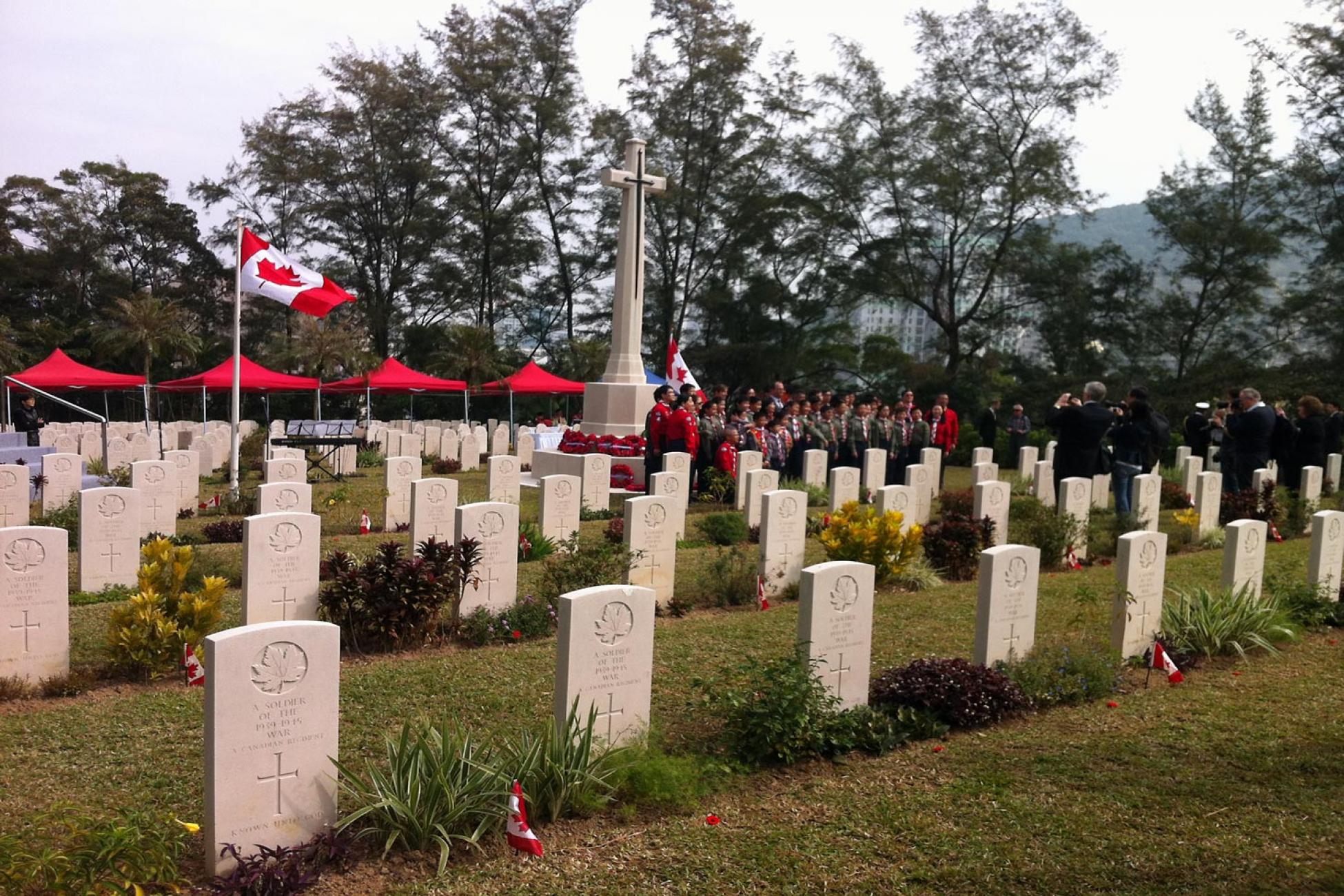I have to admit that while I often refer to myself as a WW2 history buff, my knowledge of what happened in the Pacific theatre is generally lacking. What I did know though, is that there was a large Canadian contingent stationed in Hong Kong during the war. Many of these soldiers, however, did not make it home. On December 8, 1941, the Japanese started bombing Hong Kong Island and started what would be known as the Battle of Hong Kong.
Here’s a short summary of the battle from Veteran Affairs Canada:
In October 1941, the Royal Rifles of Canada and the Winnipeg Grenadiers were ordered to prepare for service in the Pacific. . .They fought against overwhelming odds and displayed the courage of seasoned veterans, though most had limited military training. They had virtually no chance of victory, but refused to surrender until they were overrun by the enemy. Those who survived the battle became prisoners of war (POWs) and many endured torture and starvation by their Japanese captors. . .In all, more than 550 of the 1,975 Canadians who sailed from Vancouver in October 1941 never returned.
When I first arrived in Hong Kong, I had the pleasure of attending the Canadian Commemorative Service at the Sai Wan War Cemetery. The solemn affair was attended by a number of provincial dignitaries from Canada as well as several Hong Kong veterans. I was surprised to find how big of an event this was, considering how little is known about this part of the war back home. In fact, Canadian Prime Ministers have historically attended the ceremony in person.
Besides paying our respect to the fallen soldiers, attendees were treated to one of the most incredible Canadian war stories I have ever heard. In high school we often hear about Vimy Ridge and Juno Beach, but the story of Company Sergeant-Major John Robert Osborn unfortunately goes untold.
Although born in England, Osborn settled in Saskatchewan as a farmer shortly after WW1. In 1933 he joined the Winnipeg Grenadiers and was called to active duty in 1939. From Veteran Affairs Canada:
Osborn and a small group covered the [Winnipeg Grenadiers] withdrawal and when his company’s turn came to fall back he single-handedly engaged the enemy, exposing himself to heavy enemy fire to cover their retirement. Later the Company was cut off and completely surrounded. Several enemy grenades were thrown which Osborn picked up and threw back. When one landed in a position where it was impossible to pick it up, he threw himself upon it and was instantly killed. His self-sacrifice undoubtedly saved the lives of many of his comrades.
Osborn was awarded the Victoria Cross and as you can see, the story of the Battle of Hong Kong is a remarkable, yet very unfortunate part of history shared by Canada and Hong Kong. I should also note that there were a number of British, Indian and local Hong Kong soldiers who fought and died alongside their Canadian counterparts.
For anyone, Canadian or not, visiting Hong Kong, I would highly recommend visiting the Sai Wan War Cemetery. The Hong Kong Coastal Defence Museum is also recommended. Covering Hong Kong’s 600-year history of coastal defence, the museum devotes an entire section to the Battle of Hong Kong, placing an emphasis on the Canadian role.
Add this article to your reading list




